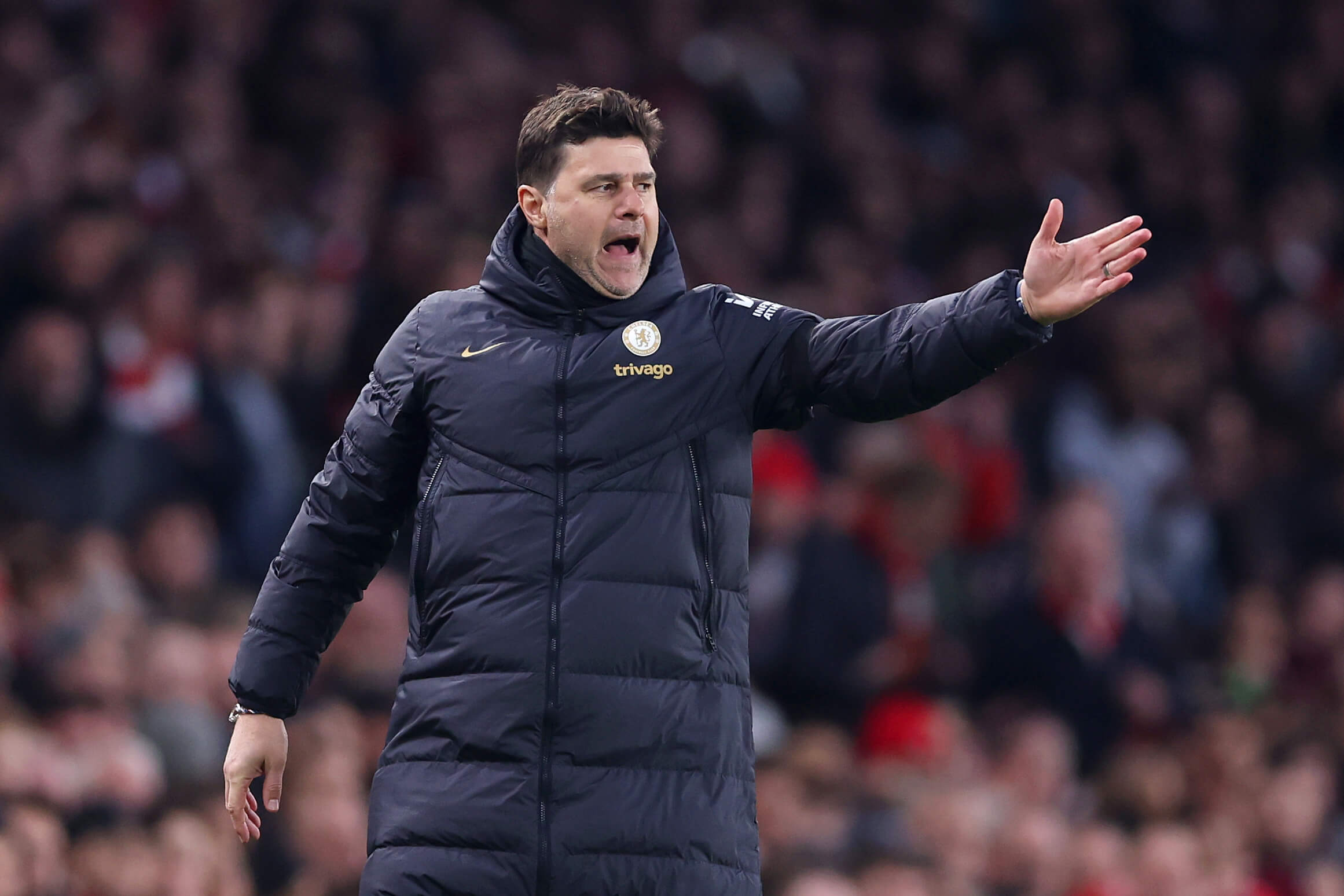“If I am a team-mate of Cole Palmer in his position or a similar position, I am going to be motivated to go there tomorrow and show this is Chelsea Football Club, not Cole Palmer Football Club. For sure.”
It always seemed likelier to end up as meme material, fresh fodder for Quotes That Precede Unfortunate Events, than some Churchillian triumph of motivation for Mauricio Pochettino.
The surprise was the scale of the embarrassment in losing 5-0: Chelsea’s worst-ever loss to Arsenal and the club’s heaviest defeat in any London derby since Queens Park Rangers scored six goals without reply against their west London neighbours in March 1986. But what transpired at the Emirates Stadium on Tuesday was only surprising, not shocking.
While they have tended to lift their level for more illustrious opponents this season, Chelsea are often like this on their bad days: callow, uncertain, disorganised, naive, wasteful. The key difference here is they met an opponent with every tool to punish them for it, every reason to be ruthless and every incentive to pile on the pain.
“When we have bad days, we are so bad,” Pochettino admitted. “When we are good, we are capable of everything.”
The latter claim feels a touch hyperbolic when this group of Chelsea players have fallen short every time they reach the brink of a truly substantive achievement this season. Pochettino’s instinctive desire to cast around for positives to harness is understandable and well established at this stage, but it made for a muddled post-match inquest.

Palmer was sorely missed against Arsenal (Marc Atkins/Getty Images)
Chelsea’s head coach said his players gave up after Kai Havertz lashed in Arsenal’s third goal and added there were no words to describe the performance, but insisted they should not be blamed and declined an invitation to say he felt embarrassed or let down. He said his squad are “not able to keep the focus” from one game to the next but argued this is actually a good thing, since it can help them recover quickly from an historic humiliation.
There was also this, in response to a question revisiting the ‘Cole Palmer Football Club’ line and his importance to the team: “He is the only player we have, a playmaker who links all the lines in the team. When you miss a player like this, it is not easy to replace.”
But the broader contradiction in Pochettino’s comments touched on a central theme in his public pronouncements for several months: any attempts to galvanise his players jar with his repeated assertions that Chelsea are the victims of what he calls “the circumstances we are living”.
Mainly he is referring to Chelsea’s relentless injury list, which grew to include Palmer, Malo Gusto and Ben Chilwell (again) before the trip to the Emirates Stadium. But there are marginally more subtle hints, detectable in his stressing “the need to be clever in the way that we assess the plan, the strategy for the future”, that indicate his doubts about the construction of this squad.
This leaves Pochettino walking a seemingly impossible line: trying to convince a young, flawed group of players that they are equipped to scale greater heights, while simultaneously signalling to Chelsea’s co-sporting directors and owners that they are bumping up against the hard ceiling on their capabilities.
Some will hear only excuses from a coach who knows he is failing to meet internal or external expectations, but this was not a good night for Todd Boehly and Clearlake Capital’s lavish recruitment drive — a significant chunk of which made up the bulk of Pochettino’s starting XI.
Their transfer record-breaking midfield partnership of Enzo Fernandez and Moises Caicedo offered only fleeting control before being overrun. On the left, Marc Cucurella battled gamely but in vain to avoid being trapped in a triangle of sadness by Bukayo Saka, Benjamin White and Martin Odegaard. In front of him, Mykhailo Mudryk did nothing to dispel the notion that, 15 months into his Premier League career, he still has little grasp of where to go and what to do in a system.
In central defence, Monaco alumni Axel Disasi and Benoit Badiashile were paired for the eighth Premier League match. Chelsea have conceded 19 goals in those matches, an average of 2.4 per game that compares unfavourably with the club’s overall average of 1.8 per game. Neither number is close to being good enough and the defensive problems in Pochettino’s team go well beyond the centre-backs, but that particular £70million ($87m) partnership looks startlingly frail.

Badiashile again struggled alongside former Monaco team-mate Disasi (Alex Pantling/Getty Images)
Noni Madueke’s bright moments in attack were undercut by the fact that he offered no protection to Alfie Gilchrist, who was overloaded by Declan Rice and Leandro Trossard within four minutes of his first Premier League start at right-back. Up front Nicolas Jackson generated chances for himself with smart movement and direct running, but finishes like a striker whose pre-season confidence has been shattered by the reality of the burden placed upon him.
Are any of these players benefitting from the collective experience of this season? Are they being put in the best position to succeed by their head coach? Are they developing as they might have done in a different environment, and in a positive direction that will one day justify the huge investment in them? Can any club endure nights like this having spent so much?
Palmer’s consistent brilliance has helped obscure many of these questions when Chelsea have won and offered a vital beacon of hope when they have not. In his absence, no one at any level of this chronically underachieving project can escape scrutiny.
(Top photo: Alex Pantling/Getty Images)

